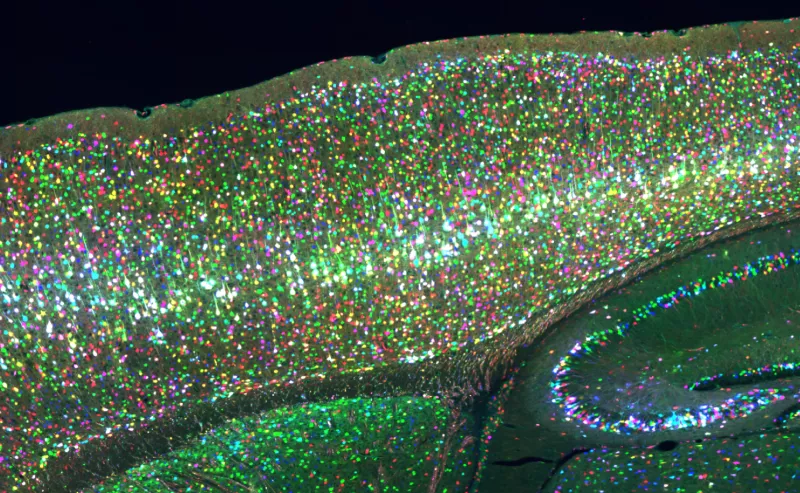In vivo CRISPR screen in a mouse brain - Image by Indigo Rose, Kampmann lab
The Kampmann lab develops and applies innovative technologies to understand cellular and molecular mechanisms of aging-associated neurodegenerative diseases, and to discover new therapeutic strategies. A major focus of our research are Alzheimer's disease and related dementias.
We have pioneered a CRISPR-based functional genomics platform in human iPSC-derived neurons, glia and 3D assembloids, which enables genome-wide modifier screens of disease-relevant cell biology in patient-derived cells. We have also developed scalable cell-type specific CRISPR screening approaches for mouse models of disease.
We use biochemistry, biophysics and cell biology to test mechanistic hypotheses generated by our functional genomics platform.
Major research questions are:
- What controls protein aggregation in neurons? Why is it toxic and how does it affect neuronal and synaptic function? Why are some neuronal subtypes selectively vulnerable? Our main focus here is on the protein tau.
- How do non-neuronal cells such as microglia, astrocytes, and oligodendrocytes contribute to disease? What controls their beneficial and toxic states and functions in disease?
We are committed to diversity and inclusion. Read more about our mission and values.
Interested in joining the Kampmann lab? Please read the instructions provided here.
Follow us on Bluesky: @kampmann.bsky.social

